wearable
Latest
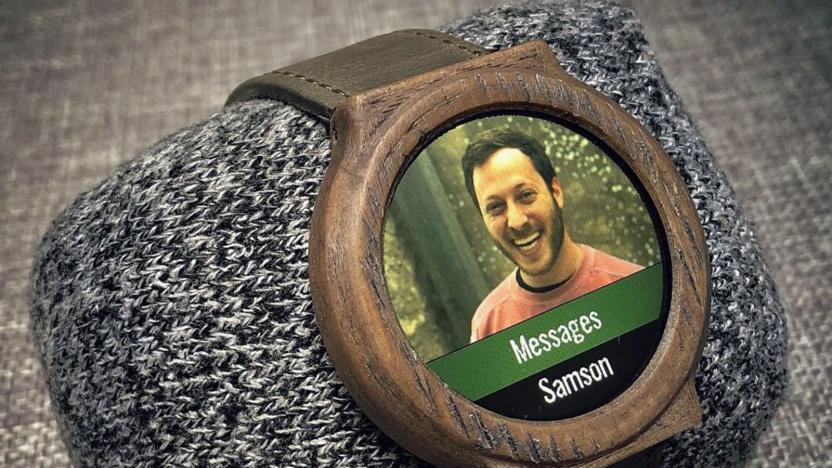
This guy built his own smartwatch and so can you
DIY projects can be a lot of fun, and if Raspberry Pi has taught us anything it's that people love to tinker. But for most folk, forays into the world of build-it-yourself tech start and end with a specific kit and a whole bunch of instructions to help them along. Not so for one inquisitive Redditor, who recently revealed that he built an entire smartwatch from scratch. And since he's been kind to enough to share details of the process down to the smallest minutiae, you can too.

AT&T stores will carry Magic Leap's AR headset starting April 1st
There are a number of challenges you face if you're interested in a Magic Leap One headset, not the least of which is trying it. Are you really going to drop $2,295 sight unseen, even if you're an eager augmented reality developer? You won't have to in the near future, provided you live in the right city. Magic Leap partner AT&T has announced that it will carry the One Creator Edition in a few of its stores, giving you a chance to try the hyped-up wearable yourself. It'll start with the company's flagship Boston store (on Boylston) April 1st, followed by Chicago (on Michigan Avenue) April 3rd and San Francisco (1 Powell) April 6th. Online orders will be available April 5th.
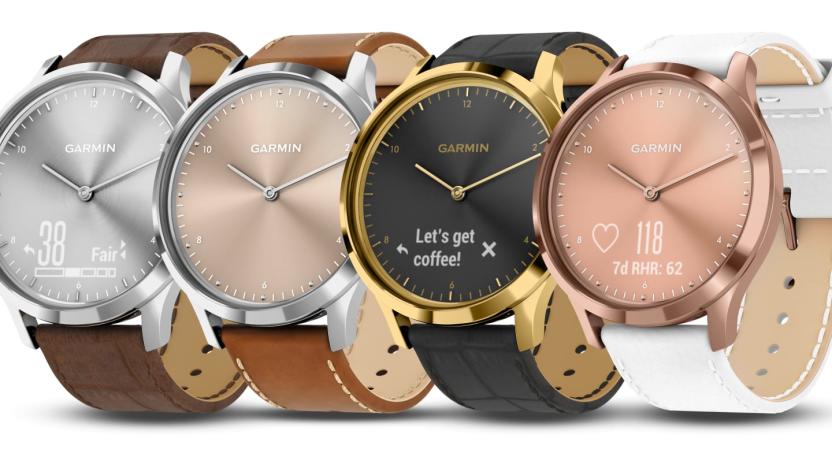
Garmin gives its Vivomove smartwatch more style with four new colors
It's been a long time since smartwatch wearers had to settle for boxy lumps of plastic around their wrists. Now manufacturers are able to cram these wearables full of features, style is firmly back on the agenda, as demonstrated by Garmin which has just announced four new color options for its Vivomove HR smartwatch.
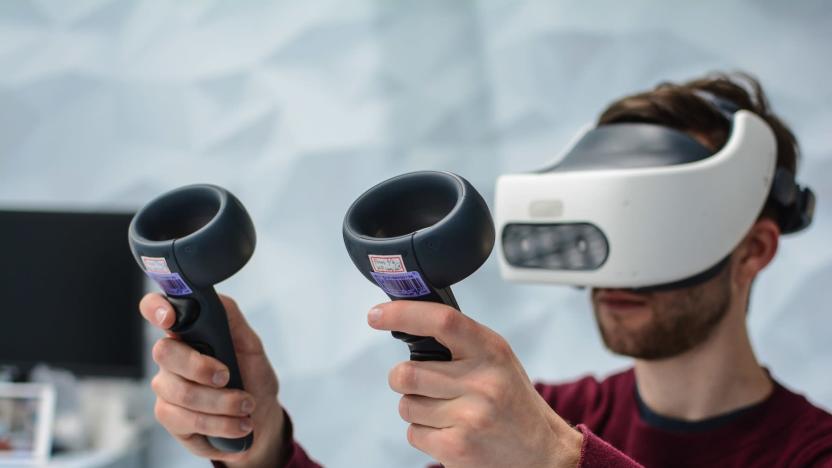
HTC's work-oriented Vive Focus Plus headset arrives mid-April for $799
If you're eager to don HTC's professional Vive Focus Plus headset, you won't have much longer to wait... although you will pay a hefty sum for the privilege. The company has announced that the Focus Plus will be available through the Vive website in mid-April for $799 in 25 markets around the world. That's a hefty increase over the $599 you'd pay for the enterprise version of the original Vive Focus, but HTC is clearly betting that the Plus' advanced performance will make all the difference for exacting users.
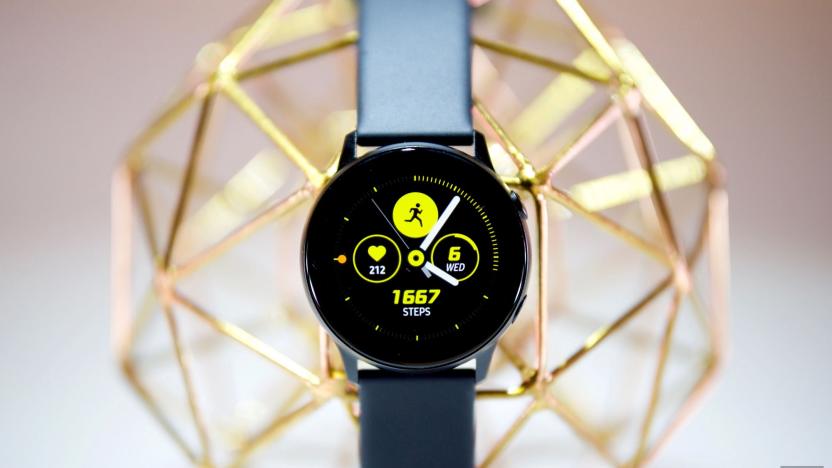
24 hours with Samsung's Galaxy Watch Active
Samsung's Galaxy Watch Active is cute. That's obviously not the only thing going for the company's latest workout-friendly wearable, but its relative cuteness is surprisingly important here. After all, it directly affected the components Samsung used here, not to mention the overall experience of living with the Watch Active. And at $200, it's also relatively inexpensive for a fitness-focused Samsung smartwatch.
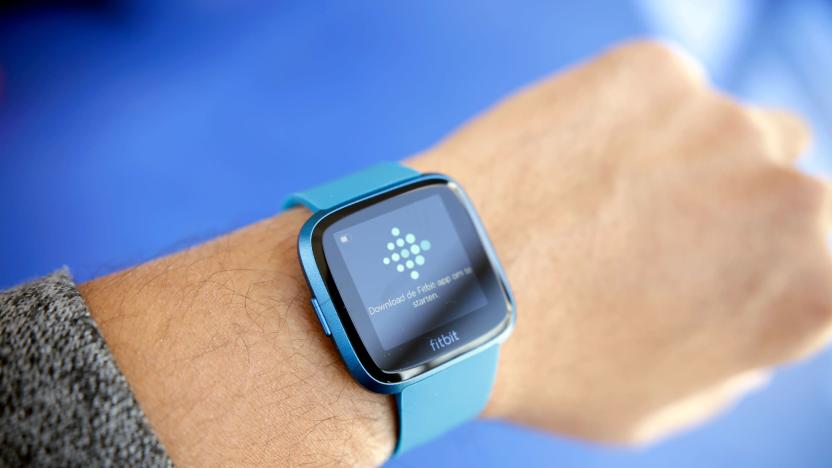
Fitbit's new Versa Lite smartwatch is all about the fitness basics
Last year's Versa smartwatch was a big hit for Fitbit, and there was no way the company couldn't make a sequel. The follow-up we did get, though, isn't exactly what some were expecting. This year's Versa Lite is exactly what its name implies — it's not a next-generation wearable so much as it is a pared-back version of last year's watch. That might not sound like the most exciting development to come out of Fitbit, but it's definitely one of the most practical. At $160, the Versa Lite is about $40 cheaper than the original, and the company hopes it'll be enough to sway people who have never wanted a smartwatch before.

Fitbit now has cheap, updated fitness trackers for the whole family
You might have missed the news, but earlier this year Fitbit quietly released a pair of new wearables — the Inspire and Inspire HR — through its Health Solutions division. You couldn't walk into a store and pick one of these up; you ever got one, it would probably be because your workplace or your insurance company gave you one. These kinds of big, specialized device sales deals might represent the future of growth for Fitbit, but the company this morning announced it would sell these updated fitness trackers direct to consumers, too.

We’re live at Samsung’s Galaxy S10 event!
Mobile World Congress is just around the corner, but wouldn't you know it — Samsung wanted all the attention it could get. Because of that, we're coming to you this morning from beautiful, foggy San Francisco, where the company plans to finally reveal its 2019 flagship phones: the S10, the S10+ and, uh, whatever that cheaper model is actually called.
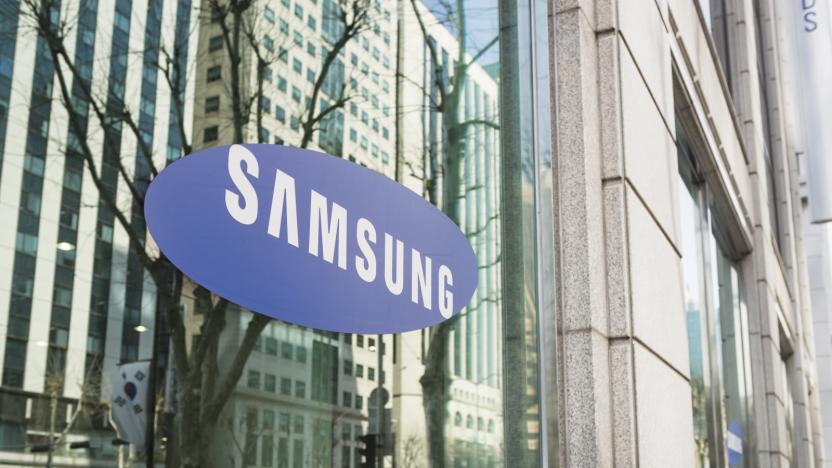
Tune in to our Galaxy S10 liveblog tomorrow at 2PM ET!
It's hard to believe sometimes, but Samsung's Galaxy S smartphones have been around for nearly a decade -- no wonder the company's trying something a little different for the launch of its new Galaxy S10s. Rather than compete for attention with everyone else at Mobile World Congress in Barcelona, Samsung is taking over the Bill Graham Auditorium in San Francisco to celebrate ten generations of flagship phones. (Oh, and lots of other things too, we're sure.) How could we not liveblog that?
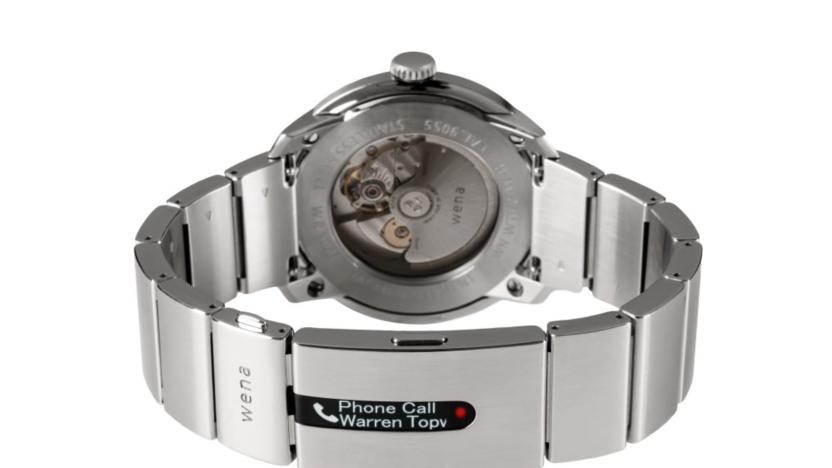
Sony's smart watch strap is now available in the UK
Sony first proposed the Wena Wrist, the curious smart watch with a dumb face, in a crowdfunding campaign back in 2015. Now, after years of availability in Japan, the wearable is hitting the international market and can be pre-ordered in the UK (no word yet on a US release). But it's not a watch -- nor even a smart watch -- in the traditional sense. Instead, the Wena Wrist is a smart strap designed to be worn with existing mechanical watch faces. You can use it to turn any classic or fashion watch into a smart bit of kit.
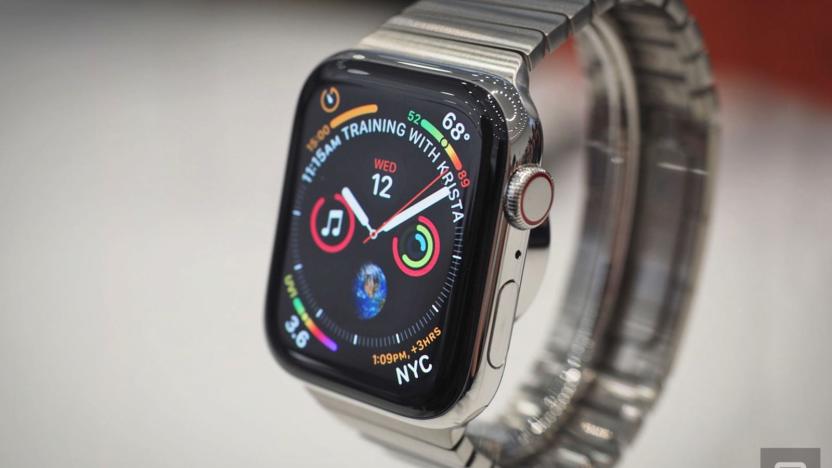
One in six American adults now wear a computer on their wrist
The days of smartwatches as niche devices might be over, at least in the US. The NPD Group estimated that smartwatch sales jumped 61 percent in the 12-month span ending in November 2018. That's no mean feat when some companies scaled back their efforts or quit the field entirely. The analyst firm also determined that 16 percent of American adults, or about a sixth of the group, now own smartwatches. There's a good possibility that you'll see someone with a smartwatch if you walk down the street, to put it differently.

Fitbit's latest tracker is only available through your work or insurance
Fitbit has quietly released a new activity tracker, but don't expect to buy one yourself -- if anything, it'll be issued to you. The company's new Inspire is a fitness band intended for companies that plan to issue wearables en masse, whether it's your health insurance provider or a just a corporation that wants employees to stay active. It's the definition of no-frills. A basic version doesn't do much more than track activity and deliver phone alerts, while the Inspire HR adds heart rate monitoring and phone-based GPS. There's no price listed, but that's likely to vary from deal to deal. It's the company's cheapest device yet, however.
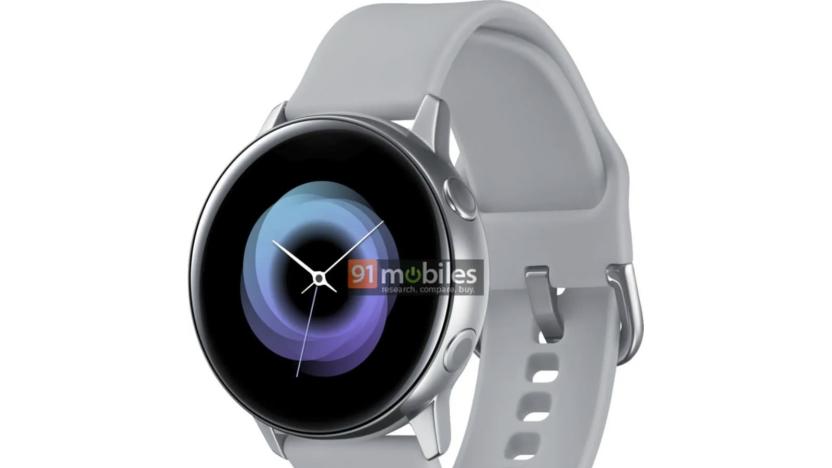
Samsung's rumored Galaxy Sport watch might ditch the rotating bezel
Samsung isn't done refreshing its smartwatches just because the Galaxy Watch is on shelves, although its next update might be contentious. A 91mobiles source claims to have an image of the Galaxy Sport (just a tentative name), and its most telling change is what isn't there -- namely, the rotating bezel you've seen on Samsung wristwear for years. It's not clear how you'd control the watch beyond the touchscreen and the usual buttons, although this doesn't rule out a tweaked on-screen interface or capacitive touch on the case.

Alphabet is exploring smart shoes that know when you fall
Alphabet's Verily isn't done finding new places for its health-oriented wearable tech. CNBC sources claim the firm has developed prototype smart shoes that measure movement and weight, and could detect when you've fallen -- not a novel concept, but still relatively rare. These wouldn't be fitness shoes, then. Instead, they could track rapid weight gain (a sign of congestive heart failure) or send an alert if you take a tumble to the ground. That last part could be particularly helpful for people who have mobility issues but still want a degree of independence.

AI-tuned robotic knee helps amputees walk within minutes
Amputees who receive robotic limbs can't usually start using them right away. It typically requires hours of manual tweaks to adapt to their particular movement styles, and they may need to come back for more if anything changes. Soon, however, they might only need the briefest tweaks to get moving. Researchers have crafted an AI system that can tune a robotic knee (not pictured) to allow walking on level ground within 10 minutes. It uses a trial-and-error algorithm to recognize patterns in sensor data, set initial safety limits, and learn patterns that match stable, smooth walking motions.
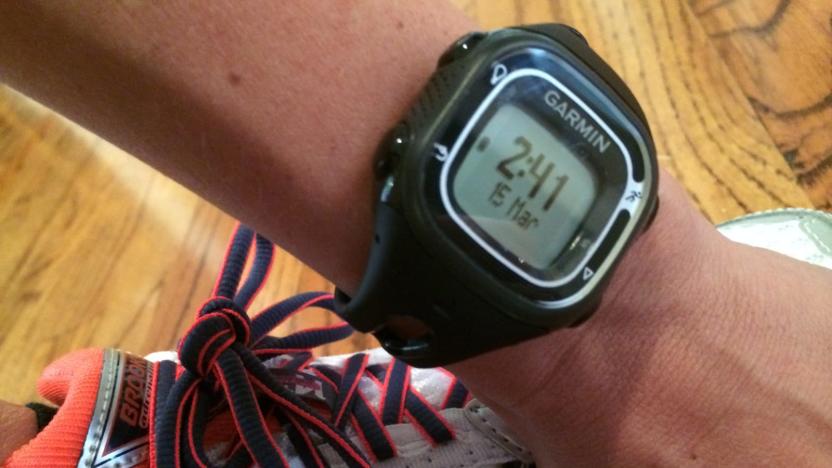
Hitman convicted thanks to fitness watch location data
An alleged hitman has learned hard lessons about the the value of GPS data on fitness watches. A Liverpool jury has found Mark Fellows guilty of the 2015 murder of mob boss Paul Massey in part thanks to location info from the accused's Garmin Forerunner. An expert inspecting the watch's info discovered that Fellows had recorded a 35-minute trip that took him to a field just outside Massey's home ahead of the murder. He appeared to be scouting the route he would take later to perform the hit, a claim supported by cell site and CCTV evidence showing Fellows driving his car past Massey's house numerous times in the week before the slaying.
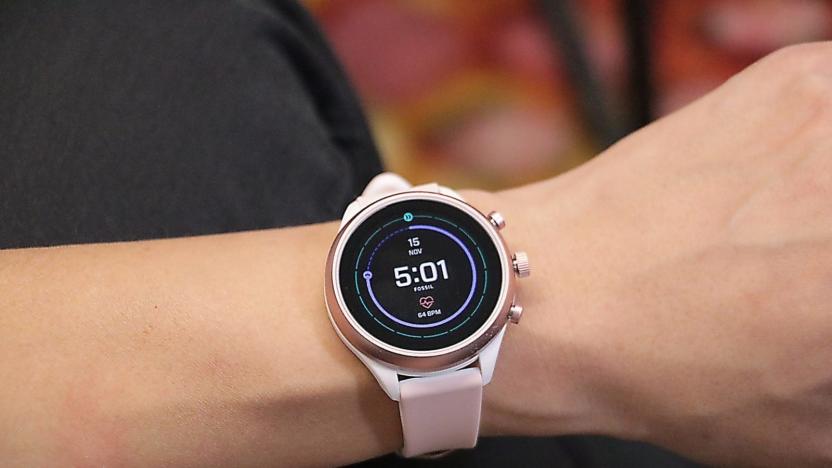
Google will buy Fossil smartwatch tech for $40 million
Google's commitment to improving its smartwatch platform is about to extend beyond overhauling its software. The internet giant has agreed to buy some of the intellectual property behind Fossil's smartwatch technology in a $40 million deal. While the two aren't specific about the technology trading hands, the arrangement will see a "portion" of Fossil's research and development team sign on with Google. The purchase is expected to complete before the end of January.
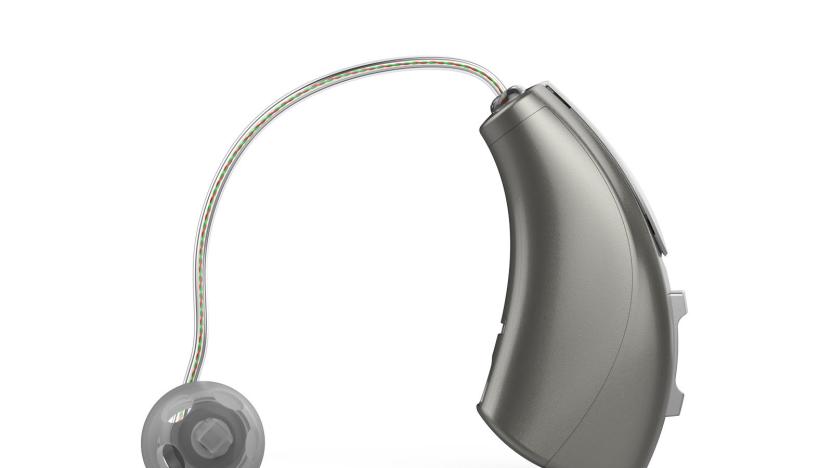
Livio AI hearing aids are now as smart as most wearables
Among the mountains of sexy technology on the market, it's fair to say that hearing aids don't feature too highly when it comes to innovation and aspirational living. But as Starkey Hearing Technologies demonstrated with its Livio AI device last year, there's a lot to be done in this field -- and now its smart hearing aid has gotten even smarter.

Google wins FCC approval to keep developing radar-based hand sensor
Google's Advanced Technology and Projects (ATAP) team has been working on Project Soli since 2015. The gesture-based system uses broad beam radar to detect and capture hand movements, turning them into commands for mobile devices. Until now, though, the tech has been restricted, with some companies -- including Facebook -- claiming that the high frequency levels required might interfere with existing technology. Now, the FCC has granted a waiver that will allow Soli to operate at higher levels than currently allowed, and therefore continue development as Google originally intended.

Wearable sensor can detect imminent opioid overdose
The number of drug overdose deaths in the US more than tripled between 1999 and 2016, with opioids accounting for the majority -- in 2018, more than 115 people died from opioid overdose every day. Now, students from Carnegie Mellon University have created a wearable device that could alert the wearer to a possible overdose, giving them enough time to administer naloxone to reverse the situation.


